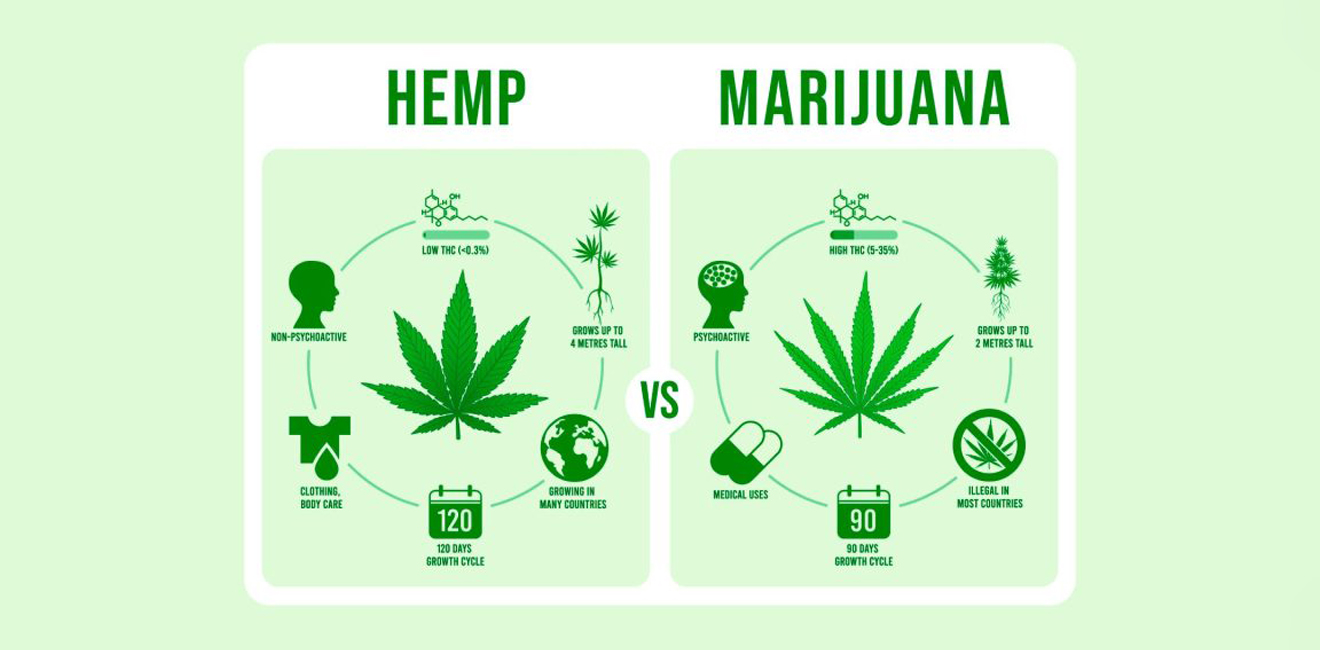Introduction
The terms hemp and cannabis are often used interchangeably, creating confusion despite their important differences. Both belong to the same plant family but differ in THC content, uses, and legal status. Understanding the difference between hemp vs. cannabis helps you make informed decisions in today’s expanding cannabis industry.
Defining Hemp and Cannabis:
- Hemp:
- Botanical Classification: Hemp is part of the cannabis sativa family, known for its industrial and health-focused applications.
- THC Content: Legally, hemp contains no more than 0.3% THC, the psychoactive compound in cannabis.
- Uses: Hemp’s versatility includes uses in textiles, food products, and CBD extraction.
- Cannabis:
- Botanical Classification: Cannabis spans sativa, indica, and hybrid strains, with a focus on recreational and medicinal uses.
- THC Content: Cannabis typically has higher THC levels, contributing to its psychoactive effects.
- Uses: Cannabis products include marijuana, concentrates, and edibles designed for both therapeutic and recreational use.
Key Differences Between Hemp vs. Cannabis
- THC Content:
- Hemp: Hemp’s low THC levels ensure it is non-intoxicating and suitable for industrial applications.
- Cannabis: Cannabis contains higher THC levels, delivering psychoactive effects.
- Cultivation Practices:
- Hemp: Hemp thrives in open fields, often grown in dense clusters for fiber and seed production.
- Cannabis: Cannabis cultivation is more controlled, with precise conditions required for maximizing cannabinoids and terpenes.
- Legal Status:
- Hemp: Hemp is widely accepted and legal in many countries due to its minimal THC content.
- Cannabis: Cannabis regulations vary, with some regions allowing limited use, while others prohibit it entirely.
The Versatility of Hemp
Hemp’s adaptability supports industries like sustainability, health, and wellness:
Eco-Friendly Solutions: Hemp provides renewable materials for textiles and construction.
Nutritional Benefits: Hemp seeds offer high levels of protein and omega-3 fatty acids.
Wellness Applications: Hemp-derived CBD is popular for its potential therapeutic effects.
Why It’s Important to Understand Hemp vs. Cannabis
Knowing the difference between hemp vs. cannabis empowers better choices for health, recreation, and sustainability:
Hemp-derived products provide non-intoxicating benefits for wellness and industry.
Cannabis offers psychoactive and therapeutic options tailored to individual needs.
Their distinctions drive innovation and help consumers navigate this evolving landscape.
Final Thoughts
Hemp and cannabis share the same botanical lineage but serve vastly different purposes. Hemp’s low THC levels and industrial uses contrast with cannabis’s psychoactive properties and recreational appeal. With this knowledge, you can approach the world of cannabis confidently, ensuring your choices align with your needs.
